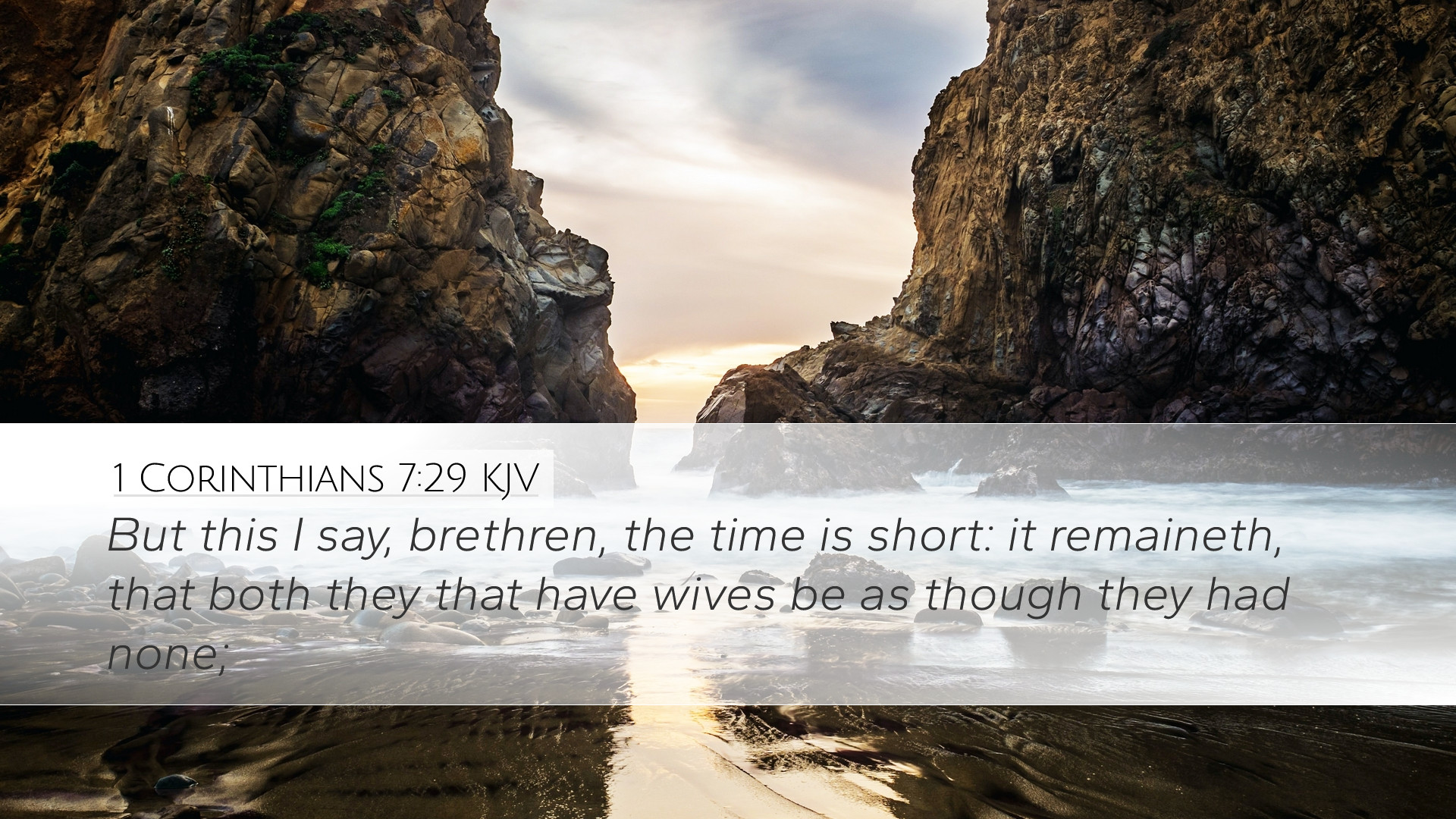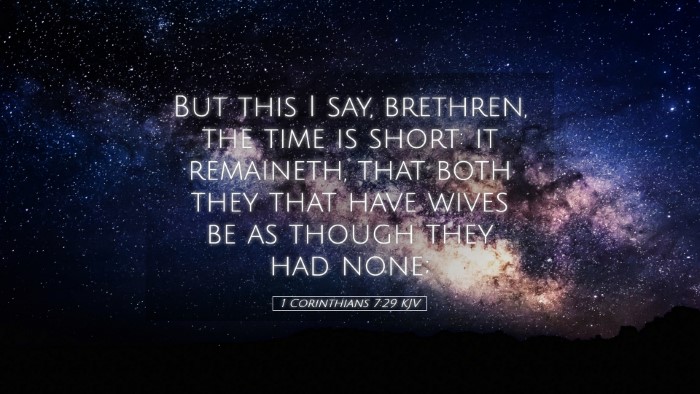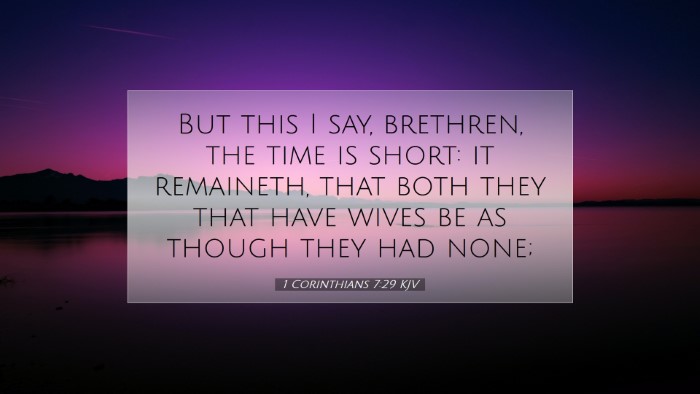Commentary on 1 Corinthians 7:29
Verse: "But this I say, brethren, the time is short: it remaineth, that both they that have wives be as though they had none."
Introduction
This verse from Paul's first letter to the Corinthians encapsulates a profound insight into the Christian understanding of time and priorities. Paul writes in the context of providing guidance on marriage, singleness, and spiritual devotion in light of present circumstances and impending eschatological realities.
Historical Context
To fully grasp the implications of 1 Corinthians 7:29, it is crucial to consider the historical context of the early church. The Corinthian church was grappling with issues concerning marriage, sexuality, and the perceived nearness of Christ's return. Paul addresses their concerns by highlighting the temporary nature of earthly relationships and the urgency of focusing on spiritual matters.
Insights from Matthew Henry
Matthew Henry emphasizes the brevity of time and the urgency of Christian duty. He points out that Paul's admonition serves as a reminder that the end of all things is at hand. Henry interprets "the time is short" as a call to live with a sense of immediacy, urging believers to prioritize their spiritual lives over earthly attachments:
- Prioritizing Spirituality: Henry notes that Paul is not advocating for neglecting marital responsibilities but is calling for believers to pursue spiritual commitments above all.
- The Illusion of Stability: He argues that the things of this world, including marriage and family, are temporary and should not distract from eternal purposes.
Insights from Albert Barnes
Albert Barnes offers a practical interpretation of this verse, suggesting that Paul seeks to redirect the focus of the Corinthian believers towards spiritual matters. He elucidates the phrase "as though they had none," interpreting it as a call for a mindset that elevates devotion to God over earthly engagements:
- Understanding Time's Nature: Barnes argues that a correct understanding of time is essential for the believer, as life is fleeting and every moment should be utilized for the glory of God.
- Calling to Balance: He stresses that Paul is not dismissing the value of marriage or family life but is instructing believers to maintain a balanced perspective where seeking God's kingdom takes precedence.
Insights from Adam Clarke
Adam Clarke provides a detailed exegesis of this verse. He critiques the fleshly desires that may hinder one's spiritual walk and articulates a need for believers to exercise self-control:
- The Concept of Shortness of Time: Clarke expands on the idea that time is limited, both in an individual sense (life’s brevity) and in the context of the awaited return of Christ.
- Living in Light of Eternity: Clarke makes a poignant observation about the call to live as if the temporal aspects of life are secondary to the eternal. He emphasizes that believers should live with an eternal focus that influences day-to-day decisions.
Theological Implications
The implications of 1 Corinthians 7:29 are vast. Firstly, this verse challenges believers to consider their earthly attachments and how they affect their relationship with God. It confronts the materialistic tendencies prevalent in society, urging believers to cultivate spiritual priorities as the ultimate pursuit.
Moreover, it serves as a reminder of the coming eschaton, where the current order will be transformed. In light of this, Paul calls for a lifestyle reflective of the gospel's urgency. This mindset fosters a detachment from worldly pursuits, empowering believers to live joyous, purposeful lives focused on God’s kingdom.
Practical Applications
- Radical Prioritization: Believers are encouraged to evaluate their time investments; are they more concerned with transient societal achievements than their relationship with God?
- Embracing Singleness and Marriage: For singles and married couples, the focus should be on how their states contribute to their ability to serve God effectively.
- Awareness of Eternity: Cultivating an awareness of eternity can transform daily living, prompting believers to be more intentional in their evangelism, service, and spiritual growth.
Conclusion
1 Corinthians 7:29 serves as a pivotal reminder for all believers, particularly pastors, theologians, and scholars, about the nature of time in relation to God's eternal plan. By understanding and applying the insights from public domain commentaries, one can grasp not just the immediate implications of this verse, but the overarching theme of living a life oriented toward God's eternal purposes rather than temporary earthly affairs.


